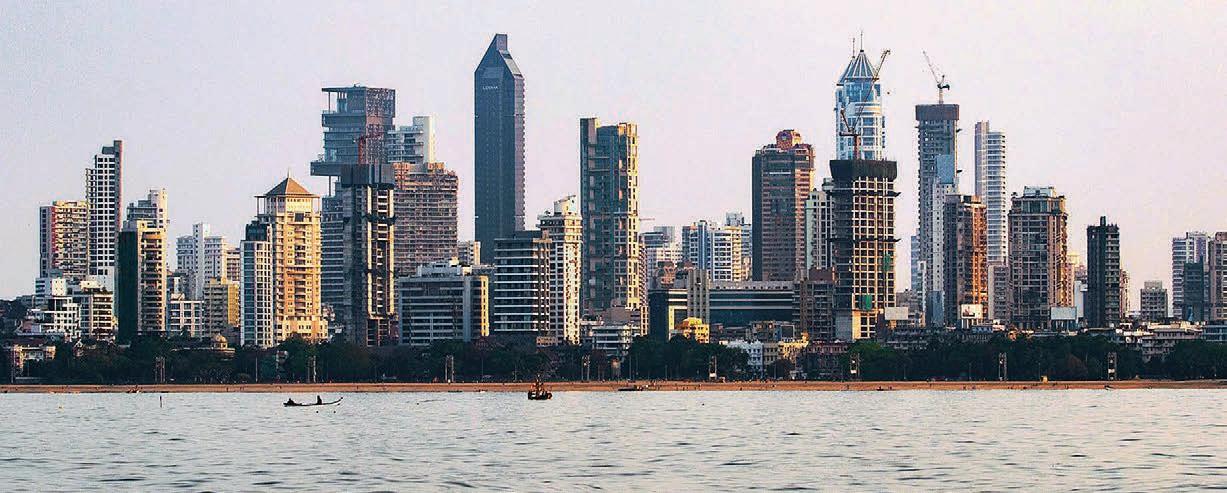
2 minute read
Greener pallet wrap has landfill covered
An Australian rm has produced a world- rst compostable plastic wrap made from food waste. Now it’s working towards one that is marine biodegradable too. Neal Wallace reports.
MELBOURNE-based Great Wrap has launched what it calls the world’s first compostable pallet wrap made from food waste.

Jordy Kay, a co-founder of Great Wrap, says the product will help combat the global reliance on petroleum-based pallet wrap, a critical part of the global supply chain, and the resulting plastic pollution.
Great Wrap is not yet producing food-grade commercial wrap for meat and dairy, or silage wrap, but has plans to work on those products.
With few facilities to recycle petroleum-based pallet wrap, more than 90% goes to landfill.
Since launching in 2019, Great Wrap has grown significantly, initially launching compostable stretch wrap from food waste and now what Kay says is the world’sfirst compostable pallet wrap also made with food waste.
The company recently opened a 10,000sqm facility in Tullamarine that includes state-of-the-art machinery. It will produce 5000t of stretch wrap this year, rising to 20,000t by 2025, making it Australia’s largest stretch wrap manufacturer.
Kay says Australia each year consigns more than 100,000t of cling wrap, catering wrap, silage
This latest innovation can solve the plastic pollution problem as it can be composted or repurposed to create new materials and returned to the soil to add microbial value.
Jordy Kay Great Wrap
wrap and pallet wrap, all made from fossil fuel, to landfill. He says commercial trials with major Australian retailers, food and beverage manufacturers compared the stretch and strength of its wrap against traditional plastic wrap, and found it to be stronger.
“This latest innovation can solve the plastic pollution problem as it can be composted or repurposed to create new materials and returned to the soil to add microbial value to agricultural land,” Kay says.
Great Wrap was one of the agricultural innovations to present its product to the 1600 attendees at the Rabobank Farm2Fork conference in Sydney in March.
Prior to its 2019 product launch, Jordy Kay and his wife Julia observed what they called a “materials revolution”, in which change was occurring rapidly in energy, transport, and agriculture – but not plastic.
“We knew the technology existed to put an end to plastic waste, but there weren’t any products available on the market for us to use,” says Jordy.
“That’s when Great Wrap was born. We invented the products we knew the world was missing so we could dump plastic once and for all.”
They were driven by demand and have since developed a 10-year vision for a world where plastic doesn’t exist.
Great Wrap is also working on a pallet wrap collection service for Australian plastic waste, having launched its direct-to-consumer line in the United States last year.
Co-chief executive Julia Kay says international demand is growing as businesses and governments support climate-positive innovations.
By 2025, Great Wrap will open a biorefinery to convert local potato waste into polyhydroxyalkanoate (PHA), a marine biodegradable plastic material made from microorganisms created from metabolising potato waste.
“There is a difference between compostable, biodegradable and marine degradable products,” a spokesperson says.
“Biodegradable products aren’t always that good for the environment as they can break down into smaller parts or microplastics.
“What we’re working towards is a material that will not only completely break down in a compost environment, but it will also completely break down in the ocean too. It will be marine degradable.”
Julia spent more than a decade as an architect in Australia and Europe, designing buildings using low-carbon materials.

She was drawn to using materials and designs that had a minimal impact on their environment and concerned at the quantity of building materials wrapped in petroleum-based pallet wrap.
Julia leads design, sales, marketing and branding and was recently instrumental in the design of their latest innovation, Great Mate, a reusable cling wrap dispenser made from 33 recycled PET bottles.
Jordy has a background in organic winemaking and prior to Great Wrap he launched his own international wine label, Chèvre. Given his entrepreneurial ambition, Jordy says he wants to slow down climate change by reducing the reliance on plastic.









